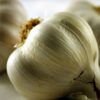Diabetes is a disorder of metabolism; the way our bodies use digested food for growth and energy. Most of the food we eat is broken down by the digestive juices into a simple sugar called glucose. Glucose is the main source of fuel for the body.
After digestion, the glucose passes into our bloodstream where it is available for body cells to use for growth and energy. For the glucose to get into the cells, insulin must be present. Insulin is a hormone produced by the pancreas, a large gland behind the stomach.
When we eat, the pancreas is supposed to automatically produce the right amount of insulin to move the glucose from our blood into our cells. In people with diabetes, however, the pancreas either produces little or no insulin, or the body cells do not respond to the insulin that is produced. As a result, glucose builds up in the blood, overflows into the urine, and passes out of the body. Thus, the body loses its main source of fuel even though the blood contains large amounts of glucose.

NIDDK








